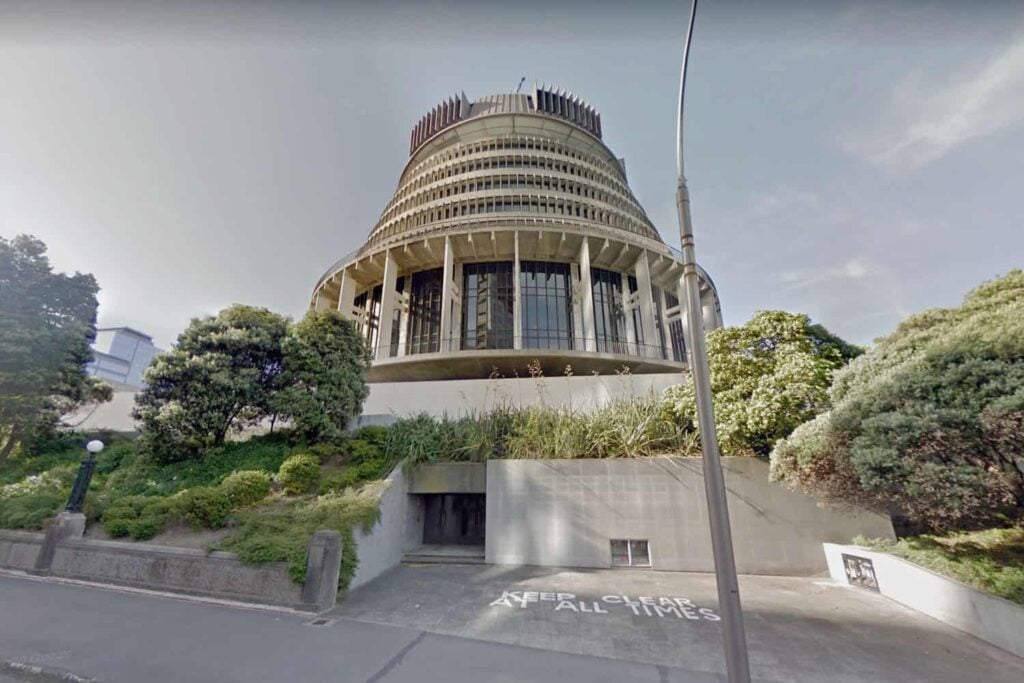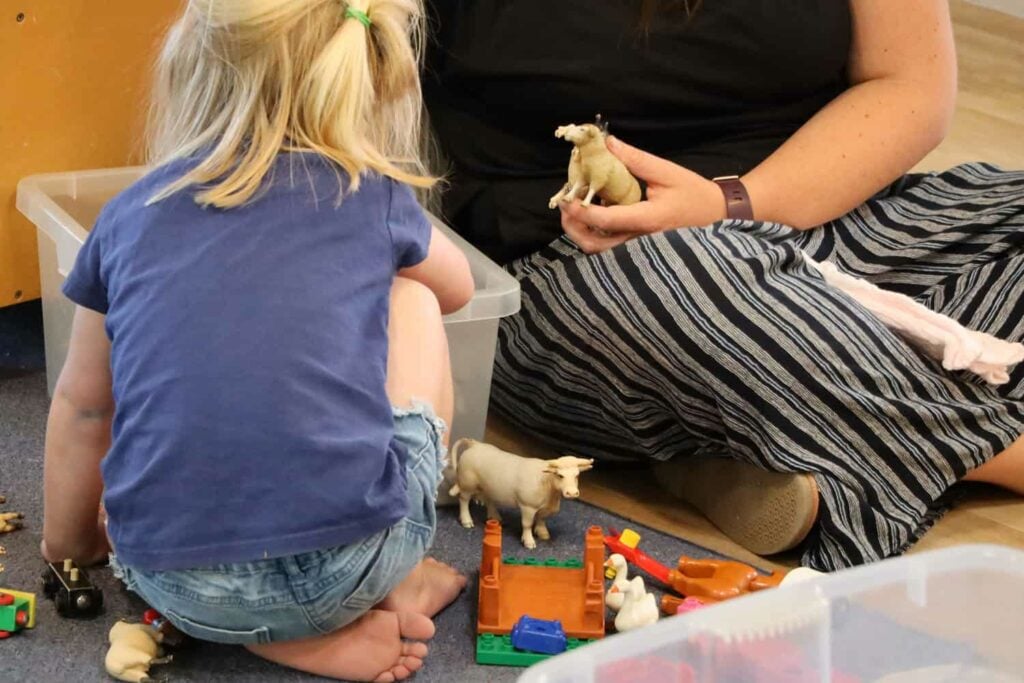Political party promises 2014.
27 June 2014.
The county’s political parties have mostly finalised their policies on which they will compete for votes.
Early childhood education has not figured highly in political talk in the media and has not become an election issue as it was in some previous elections.
Policies that help families are on the agenda, with the extension of paid parental leave contained in several party manifestos along with initiatives to support new parents and improve access to health care.
The election is set for September 20th 2014.
Below are policy details for the main and minor political parties that have ECE policies.
National
Early Childhood Education
- An additional $156 million to help early childhood education centres to remain accessible and affordable, meet demand pressures, and increase child participation towards the Government’s 98 percent target.
Family
- $33 million in 2014/15 to help vulnerable children, including eight new children’s teams around the country to identify and work with at-risk children and their families, to screen people who work with children, and to support children in care.
- Extend paid parental leave by four weeks and include caregivers other than parents
- Increase parental tax credit and entitlement length
- Free GP visits for children under-13
Maori
Early Childhood Education
- An increase in free hours for kōhanga reo and early childhood education from 20 to 30 hours per week
Family
- Free after-school care for children at primary school level up to 10 hours per week
- An increase in adult literacy programmes to include community-based whānau literacy programmes so parents and caregivers can help their children to learn.
Labour
Early Childhood Education
- Increase 20 hours subsidy to 25 hours a week for 3 to 5-year-olds
- Extend free ECE to vulnerable children under-3
- Restore funding for 100% qualified teachers in all teacher led services
- Build more ECE centres in high need areas
Family
- Best Start payment of up to $60 per week for baby’s first year for families earning less than $150,000 a year. For babies born after April 2016
- Extend paid parental leave to 26 weeks. Extend to 22 weeks from 2015 and 26 weeks from 2017
- Extra support for expectant parents including free antenatal classes, antenatal assessments for all women by 10 weeks gestation and a new mums programme to support vulnerable mothers.
- Extend Well Child/Tamariki Ora visits and assist families to registers with GPs, dental health providers and the immunisation register
Green Party
Early Childhood Education
- Extend the 20 hours ECE subsidy to cover 2-year-olds
- Provide $32million to fund 100% qualified teachers in in teacher-led ECE services
- Build 20 new ECE centres on the site of low decile schools
- Hold a ministerial review of funding and staff ratios
- Help services to share best practice and reinstate Centres of Innovation programme
- Set maximum overall child numbers which centres cannot exceed
- Support for networks of not for profit ECE centres to increase collaboration
- Encourage clustering of ECE services and nearby primary schools to help transition to school
- Support diversity of immersion learning including Maori and Pacific languages
Family
- Introduce a universal child benefit
- Extend paid parent leave to 13 months
- Work towards a shorter working week
- Encourage flexible working hours for parents
- Support early intervention programmes for children at risk
- Prohibit commercial adverts during pre-school and school age children’s television programming
- Work towards free healthcare for all children
- Encourage breast feeding as ideal nutrition for babies
- Create warmer well-insulated homes
- Ensure nutrition, cooking and gardening are taught in schools
- Establish effective systems for the development and co-ordination of services for tamariki and rangatahi Maori.
- Work with Pacific peoples to develop robust policies that secure the rights of Pacific children in the context of family, church and culture and work.
- Involve children of different ethnic groups and communities in the development of plans and strategies.
NZ First
Early Childhood Education
- Give greater focus to the second strategic goal within Nga Huarahi Arataki to improve the quality of all ECE services.
- Conduct a funding review of parent-led early childhood education services to realistically fund Playcentre as a quality parent-led service for young children and their families.
- Support the growth of Playcentre as a quality parent-led early childhood education service. Currently 481 centres with 14,000 children and their families.
- Review the special needs of Playcentre rural provision for group learning to provide realistic operational support.
- Fund administration, compliance, and structural support staff for Playcentres ($5m per year).
- Liaise with NZQA to ensure that the pathway for Playcentre qualifications gained by parent teachers can be credited towards the Diploma in Early Childhood Education.
- Liaise with Playcentre Federation to explore and fund new initiatives to increase participation within targeted communities. ($500,000).
- Work with Te Kohanga Reo National Trust to develop a supportive and sustainable funding model that future proofs Te Kohanga Reo as an essential stakeholder in our early years and early childhood public education sectors.
- Liaise with stakeholders to ensure that academic and professional value is assigned to, and inherent within, any Te Kohanga Reo qualification.
- Explore the option of Te Kohanga Reo funding being re-allocated to the Ministry of Maori Affairs in recognition of its founding principle as a ‘language nest’.
- Review the adult to infant (under 2s) staffing ratio in ECE centres as an urgent health and safety matter.
- Restore the requirement for all early childhood education providers to ensure that the 100 per cent registered teacher ratio is achieved.
- Support nationwide professional development for Te Whariki, the New Zealand early childhood curriculum policy statement and Kei Tua o Te Pae, the best practice assessment resource linked to the four broad principles of Te Whariki – empowerment, holistic development, family & community and relationships.
- Work with the sector to amend relevant criteria to ensure an increased ability of isolated rural communities to participate in early childhood education, e.g., mobile kindergartens.
- Support the HIPPY organization in their provision of early childhood education opportunities for 4 and 5 year olds and their families.
- Establish a fund for research into best practice and innovation in New Zealand early childhood education.
Family
- Improve and lift living standards for vulnerable families and at-risk children by implementing policies that emphasise equality.
- Combine all parent-caregiver support programmes under the umbrella of a single agency.
- Continue to focus upon family health, and particularly early intervention, by expanding such programmes as ‘Family Start’ and home based support.
United Future
Early Childhood Education
- Encourage more men to join the teaching profession at all levels, including ECE
- Support the concept of parents as first teachers and expand access to programmes like PAFT and HIPPY to families other than those deemed to be at-risk
- Endorse the role of parent-led early childhood education centres, such as Playcentre, to empower parents to lead their children’s education and encourage the parent-child bond
- Promote an increase of funding for early identification of children with special needs and disabilities with targeted systematic, intensive and high quality interventions
- Ensure that government funding of early childhood centres is reflected in the fees passed on to parents by requiring them to disclose what proportion of fees are taxpayer-funded
- Pilot the use of early childhood education centres as contact points for family support services, such as parenting courses, budget advice, health and counselling services
- Simplify, with a view to reducing, the quantity and complexity of compliance requirements that early childhood education and care providers must fulfil
Family
- Introduce Income Sharing for couples with dependent children, to reflect the fact that the family is generally the economic unit and not an individual earner in a family. Income Sharing means that, for tax purposes, the income of both parents is combined and then divided equally.
- Extend paid Parental leave to 13 months, as originally recommended by the Families Commission. In addition to the current 14 weeks’ leave for mothers (which is able to be transferred to her partner upon application), a father or other partner would be able to take up to four weeks’ paid leave in their own right, either at the same time as the mother or on their own. An additional 38 weeks’ ‘family leave’ would be available to either parent, adding up to 56 weeks in total. The full package would be phased in over time with the aim of providing the full entitlement within 5 years;
- Support flexible working hours
- Create one-stop shop Family Service Centres, building on the current ‘Heartland Services Centres’ model used in rural areas, to meet community needs in a coherent and family-friendly way. These centres would offer parents information on opportunities that exist for them and their children, and would be a point of contact for government and NGO-provided services demanded by the community
- Fund a public education campaign to provide couples with the tools to improve their relationships, followed up by access to resources and counselling services
- Improve access to effective parenting programmes for a wider range of parents and parenting stages
- Improve access to relationship counsellors and courses for families
- Ensure that schools years 7–13 at school take an integrated approach to life skills by establishing it as a separate subject, including segments on career planning, budgeting advice, civic education, relationship and parenting skills
- Target infant health by concentrating on the appropriate support for parents before and after birth and ensuring high-quality extended care and support, including home visits, by lead maternity carers and Plunket
- Treat child obesity as a parenting issue and use parent education as the first line of attack to reduce obesity rates
- Take further steps to safeguard children from harmful internet material, working with organisations such as NetSafe and the ICT industry to ensure that filtering software and other appropriate safety measures, including effective Codes of Practice, are effective
- Make the Children’s Commissioner part of the refocused Families Commission
- Support the ongoing funding and development of the longitudinal programme, “Growing Up in New Zealand” and the Dunedin Multidisciplinary Health and Development Study and the Christchurch Health and Development Study
Mana
Early Childhood Education
- Increase the number of kōhanga reo to improve accessibility, including in low decile areas.
- Provide funding for up to 40 hours per week for each tamaiti/kotiro
- Improve access to te reo classes for whānau and staff to strengthen te reo in the home
- Develop a policy framework to support the kaupapa of kōhanga reo, including an appropriate regulatory and licensing regime, to increase participation, quality, and the health and safety of kōhanga facilities
- Increase funding for kōhanga reo to implement the policy framework, equitable to that in teacher-led early childhood education
- Invest in training more kaiako in special education from a Māori perspective
- Invest in research on how to support and build the contribution of kōhanga to language revitalization and Māori educational success
- Fund kōhanga to provide healthy, nutritious meals for tamariki, to grow trees and gardens in their centres, and to provide health care services at kōhanga
- Improve the quality of early childhood education for all tamariki
- Raise minimum regulatory standards to improve the quality of provision, including an adult-child ratio of 1:3, setting minimum qualification levels for those working in home based services, and requiring 100% qualified and registered teachers in teacher-led, centre based services
- Increase funding to non-profit ECE centres to meet these new minimum regulatory standards
- Increase Playcentre funding to remove reliance on volunteer administrators
- Streamline processes for parents to establish new community and state owned ECE services
- Further develop engagement and collaboration between parents, whānau and ECE services through resourcing and professional development
- Reinstate funding for research and professional development to ensure services are culturally relevant to the communities they serve, including Māori and Pacific communities
- Support ECE services to better support the learning and development of children with special needs
- Introduce government-funded breakfast and lunch programmes and health care services in all non-profit ECE centres
- Ensure there is a quality local kura kaupapa for all kōhanga 5 year olds
- Increase the number of kura kaupapa Māori, and wharekura, to greatly improve accessibility to Māori immersion education, and increase funding to ensure quality of provision
- Invest in the ongoing development of a curriculum and assessment system that is consistent with Te Aho Matua
- Invest in the ongoing training and professional development of kaiako and whānau, supported by research, and including improving access to te reo classes and wānanga









